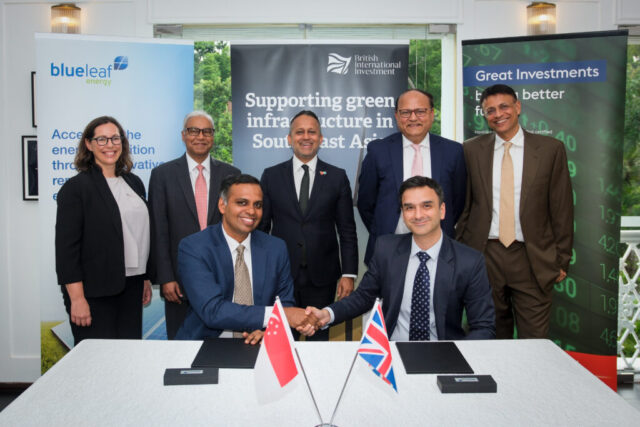The name change comes twelve years after BSC was founded, and more accurately reflects the organisation’s areas of focus and long-term mission, it says.

The UK social impact investor Big Society Capital, which was set up in 2012, has changed its name to Better Society Capital (BSC). The organisation says the new name more accurately articulates its mission, while retaining its track record and heritage.
Speaking to Impact Investor, CEO Stephen Muers said: “Our mission and our strategy remain the same. But we had a lot of feedback from different stakeholders and partners who don’t really know what a ‘big society’ is. They asked us what it meant to be a big society, and we felt we needed a clearer and better name to capture what we aim to do, which is to create a better society.”
Growing sector
Conceived under the New Labour government in the early 2000s before being launched under a coalition government, BSC was set up to be an independent and financially stable organisation, with initial funding from assets in dormant bank accounts in England, as well as money from the UK’s largest banks. It has invested £925m (€1.79bn) since its inception, and has unlocked a further £3bn from other investors including pension funds, trusts, foundations and family offices.

Gordon Brown, former prime minister of the UK, said: “It is very heartening to see how much has been achieved using unclaimed assets since the legislation to release them passed in 2008. I congratulate the BSC team for its creativity and skill in pursuing its important mission. I wish it continued success in creating a better society under its new name.”
BSC says it has helped the UK market grow more than tenfold since it was launched – through its own investments, as well as by bringing co-investors into the social impact space – and through its awareness raising and education initiatives. “Our current strategy aims to double the size of the market between 2020-2025,” said Muers.
Homelessness and other initiatives
Homelessness remains a particular challenge that BSC wants to tackle, according to Muers. “We continue to be very focused on housing and homelessness. There are over 100,000 people in the UK in temporary accommodation, which is just horrendous for the people involved,” he said.
Other BSC initiatives in recent years have included helping create Good Finance, which supports social purpose organisations as they navigate social investments, and helping retail investors access to the market via the Schroder BSC Social Impact Trust. BSC also partnered up with the Department of Levelling Up, Housing and Communities to support families in temporary accommodation, and was involved in the largest transfer of UK renewable energy assets to community ownership.
Additionally, Muers pointed to the 2023 launch of the Energy Resilience Fund, which supports community and social enterprises to reduce energy usage, stabilise energy costs, and contribute to long term net zero goals.
“The intersection of social and environmental benefit is an area where we are doing quite a bit of work,” he said.
Political appetite for change
He believes the UK’s current political landscape offers up an opportunity to bring social impact issues to the centre of the debate. Earlier this month BSC and Big Issue Invest were among 36 organisations that outlined proposals which they said could help direct up to £50bn of additional private investment towards driving growth and eliminating poverty across the country over the next decade.
“There is a big opportunity around the election for us to make the case to all political parties that social impact investment has been able to provide part of the solution, and that it is something that people are going to care about in an election period. We are trying to raise the profile of issues like homelessness, investments in poorer communities, in mental health and financial inclusion. I hope that politicians from all parties will take that seriously,” Muers said.
But the pace of progress remains to be seen. “We have some good partnerships with the current government, and we are working closely with some of the local and combined authorities. Some people are listening, and progress has been made, but there’s a lot more potential,” he added.





